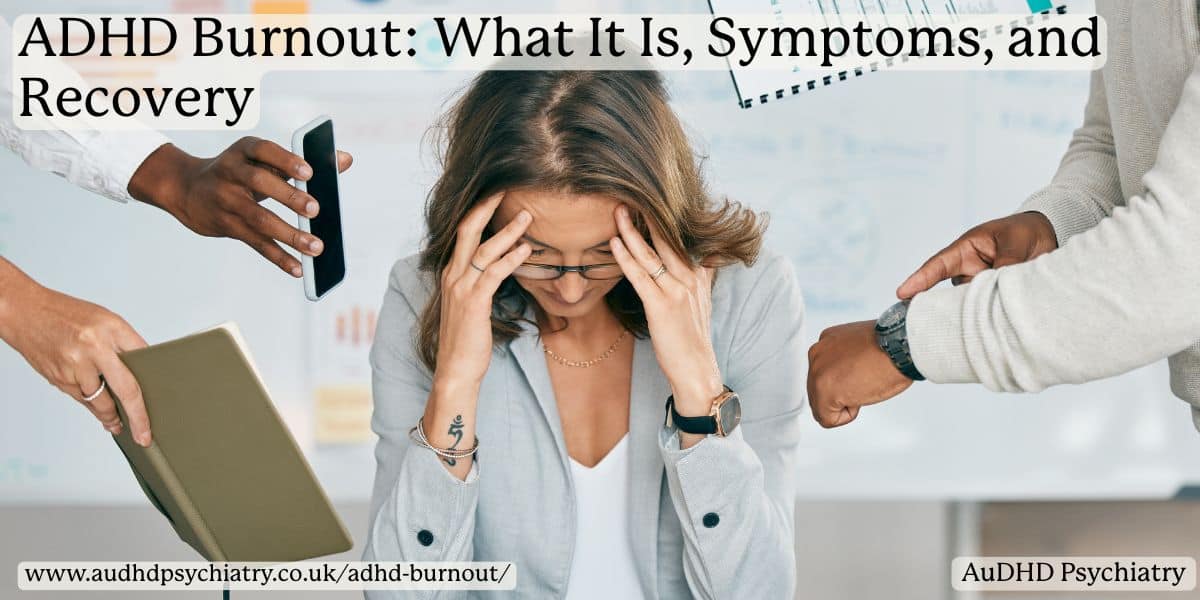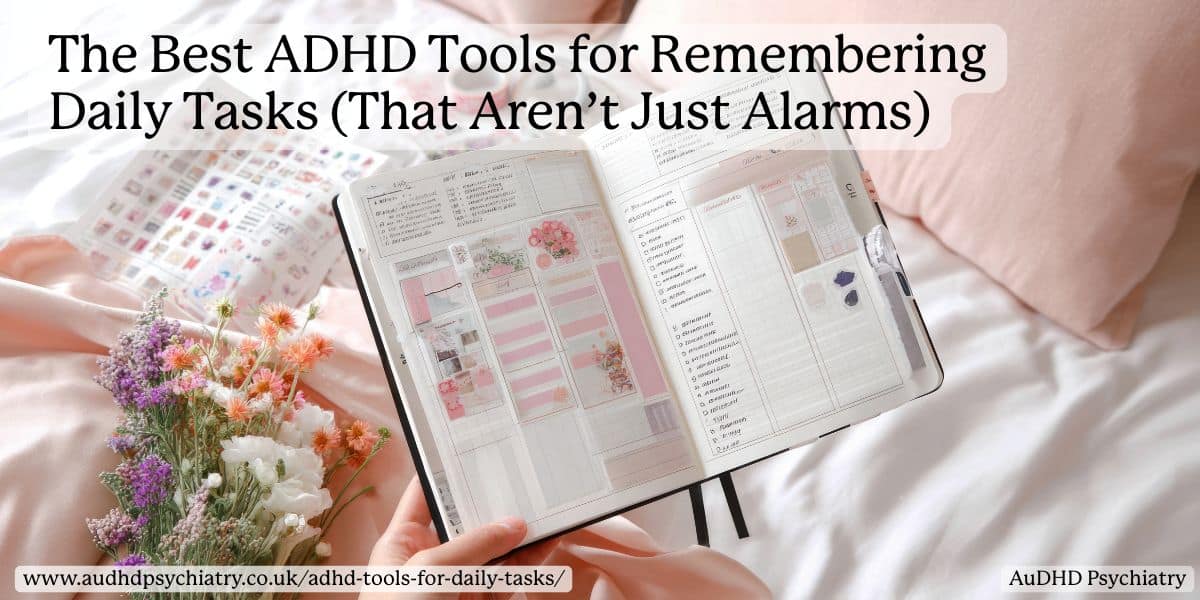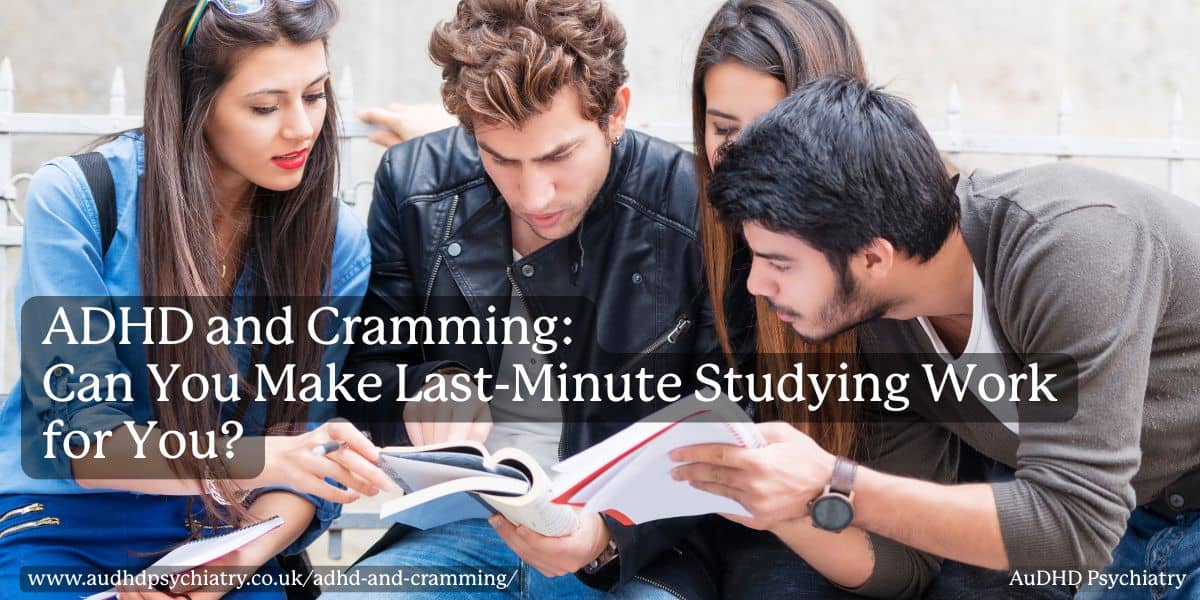
We’ve all heard the usual tips: exercise, get enough sleep, eat well. But here’s one we might overlook—stay hydrated. Drinking water isn’t just for athletes or wellness influencers; it’s actually a total game-changer for our brains.
Let’s dive into why hydration matters so much for ADHD brains (and yes, there’s research to back it up) and how we can make staying hydrated an easy win. (Also, if you’re seeking an ADHD clinic serving Glasgow, give us a call!).
Why Water is Essential for ADHD
Our brains are about 75% water, so when we’re dehydrated, it’s like running a laptop on 1% battery—it’s not going to perform well. Research shows that even mild dehydration can mess with our cognitive function, mood, and energy levels.
A 2020 study in Journal of Human Nutrition and Dietetics found that even mild dehydration significantly impacts cognitive performance, particularly attention and memory – areas we may already struggle with. The study highlighted that staying hydrated can help improve these cognitive functions, making tasks requiring sustained attention easier.
Another study published in Psychopharmacology (2018) found that dehydration can make emotional regulation even harder. For ADHDers, who may already experience heightened impulsivity and irritability, dehydration can exacerbate these, making it even more important to keep hydrated.
Research from Frontiers in Psychology (2017) also examined how hydration plays a key role in the production of neurotransmitters like dopamine, which are crucial for focus and impulse control.
For ADHD brains, which often experience imbalances in dopamine, proper hydration can help improve neurotransmitter function, potentially making it easier to regulate attention, mood, and behavior.
When we’re dehydrated, we might notice:
- Brain fog: Our brains struggle to process and focus.
- Mood swings: Impulsivity and irritability can skyrocket.
- Fatigue: ADHD energy dips feel even worse.
The ADHD Brain-Water Connection
Hydration is key for producing neurotransmitters like dopamine, which already runs low in ADHD brains. Staying hydrated helps regulate dopamine levels, potentially easing challenges with focus, impulsivity, and mood swings.
Dehydration also reduces blood flow to the brain, making anything that requires mental effort feel 10 times harder. That’s why something as simple as drinking enough water can make such a big difference—it helps our brains work more efficiently.
7 ADHD-Friendly Hydration Hacks for Us
We all know how hard it can be to remember to drink enough water, but these simple tricks can help us stay on track:
- Keep It Visible. ADHD brains are all about “out of sight, out of mind.” Get a bright, fun water bottle and keep it where we’ll see it—on our desk, next to the bed, or in our bag.
- Set Alarms. Timers or hydration apps are lifesavers. Use them to remind us to drink throughout the day, because let’s be real—time blindness is real.
- Link It to a Habit. Pair drinking water with something we already do daily, like taking our meds or making coffee. Habit stacking makes it easier to stay consistent.
- Snack on Water. If plain water isn’t our thing, go for water-rich foods like cucumbers, oranges, or watermelon. These sneaky snacks boost hydration without feeling like a chore.
- Add Flavour. Make water more exciting by adding lemon, mint, or a splash of sugar-free juice. We could also try sparkling water or herbal teas to mix things up.
- Track It. There are plenty of apps that can help us track our water intake. We can gamify it by setting small goals, like drinking a certain amount by noon, to keep ourselves motivated.
- Get a Straw. Using a straw or a bottle with a built-in straw can make drinking water more appealing and convenient, especially when we’re on the go.
The Benefits of Staying Hydrated
Once we make hydration a priority, we’ll be surprised at how much better we feel. Staying hydrated can lead to:
- Improved focus and attention: A well-hydrated brain performs better, making it easier to concentrate for longer periods.
- Enhanced mood stability: Hydration helps balance neurotransmitters, reducing irritability and improving emotional regulation.
- More energy: Water helps oxygen flow through the body, boosting energy levels and reducing fatigue.
Signs You’re Dehydrated
It’s easy to overlook mild dehydration, but being aware of these common signs can help:
- Dry mouth
- Headaches
- Dark urine
- Feeling fatigued or dizzy
- Difficulty concentrating
If we notice any of these symptoms, it’s time to grab a glass of water and start sipping!
Final Thoughts
Managing ADHD can feel like juggling a million things at once, and adding another habit might seem daunting. But staying hydrated is one small change that can have a big impact on our brains and bodies. Whether we’re struggling with focus, mood swings, or energy dips, drinking enough water can help us feel more in control and on top of our game. Start small, find what works for us, and watch as hydration becomes a refreshing and rewarding part of our ADHD management plan!
If you’re looking for more support in managing ADHD, our team of experienced coaches is here to help. Reach out to us today to learn more about our tailored Adult ADHD Coaching packages and how we can help you achieve your goals.
For advice on maintaining focus and productivity at work, check out our blog on: How to Manage ADHD in the Workplace.
References
- Armstrong, L. E., et al. (2020). The impact of hydration on cognitive performance and mood in athletes and non-athletes. Journal of Human Nutrition and Dietetics, 33(1), 25-32.
- Ganio, M. S., et al. (2018). Dehydration and its effects on mood, behavior, and cognitive performance. Psychopharmacology, 235(5), 1519-1526.
- McKinley, M. J., et al. (2017). Hydration and brain function: The role of water in dopamine regulation and cognition. Frontiers in Psychology, 8(7), 332-339.
- Benton, D., et al. (2016). Hydration and academic performance in university students: The influence of water consumption on cognitive performance and mood. Appetite, 103(1), 53-59.
You Might Also Like
Contact Us
We’re here to answer any questions you might have.
Get in Touch
Opening Hours
Contact Form
We’re here to help. Reach out and we’ll get back to you within 24 hours (Monday – Friday).




Leave a Reply